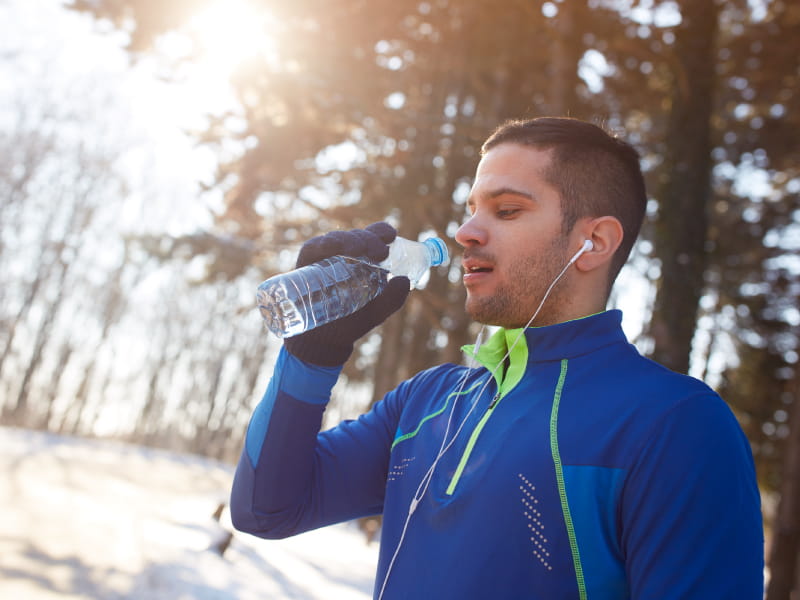Winter may not bring the scorching heat of summer, but that doesn’t make hydration any less important. With cold air outside and heated indoor spaces, staying hydrated in winter is essential to maintaining your overall health. Despite reduced thirst cues in colder months, your body still needs water to function properly. From keeping your skin soft to ensuring proper circulation, hydration plays a pivotal role in winter wellness.
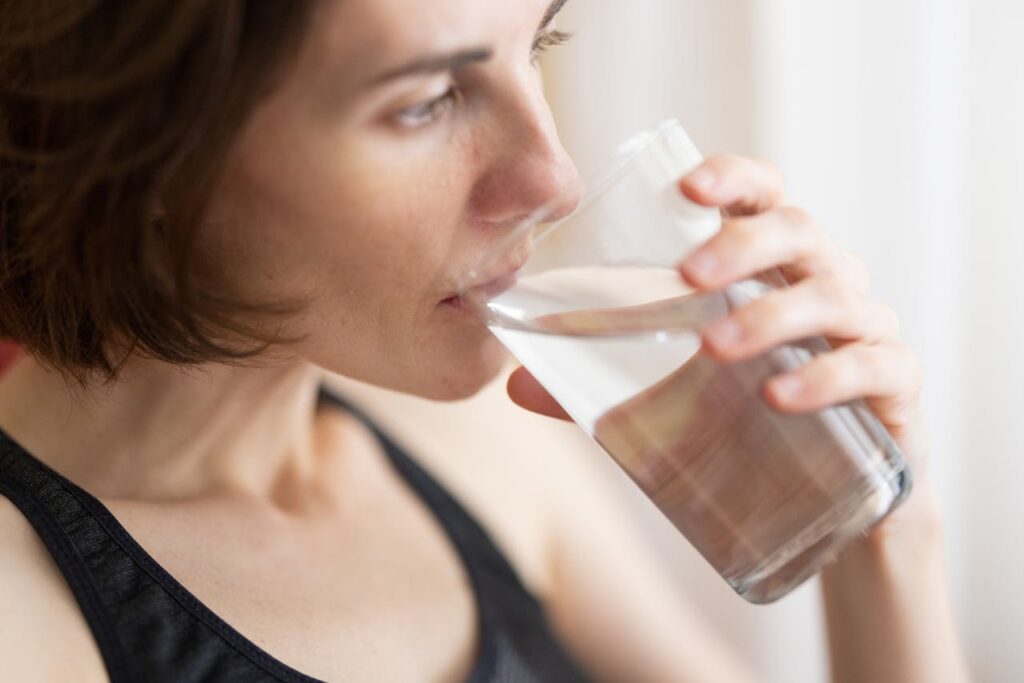
The Importance of Staying Hydrated in Winter
Hydration in winter is often overlooked because people sweat less and feel less thirsty. However, your body constantly loses water through basic functions like breathing, urination, and digestion. When paired with the effects of cold weather—such as dry air that saps moisture from the skin—dehydration can become a sneaky problem.
Proper hydration helps:
- Regulate body temperature even in cold weather
- Support immune function to ward off winter illnesses
- Keep skin hydrated against dry, flaky conditions
- Promote smooth digestion
- Enhance mental clarity and reduce fatigue
Skipping hydration in winter can result in dry skin, cracked lips, fatigue, and even weakened immunity.
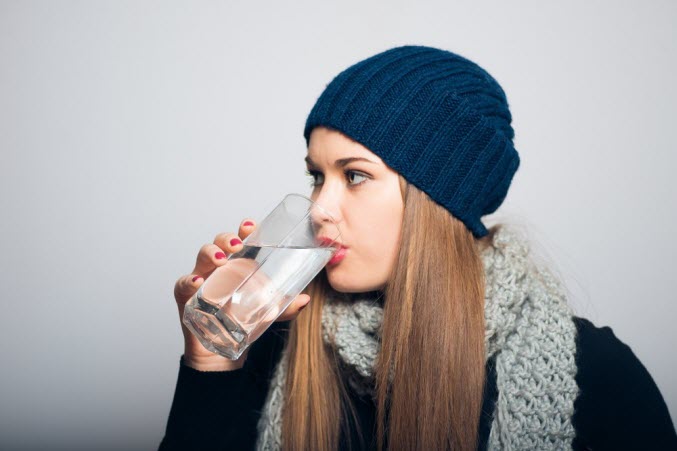
Why Do We Dehydrate More in Winter?
Several factors contribute to dehydration during the colder months:
- Dry Air: Both outdoor cold air and indoor heating systems pull moisture from your body and skin.
- Reduced Thirst Signals: The cold suppresses your brain’s thirst response, making it easy to overlook your water needs.
- Water Loss Through Breathing: Cold air is drier, and breathing it in increases water loss from your lungs.
- Layered Clothing: Heavy winter clothing can make you sweat without realizing it, contributing to fluid loss.
These factors highlight the hidden risks of dehydration in winter.

Signs of Dehydration in Winter
Dehydration isn’t always obvious in winter, but here are some common signs to watch for:
- Chapped lips or dry, itchy skin
- Dark-colored urine or infrequent urination
- Persistent fatigue or sluggishness
- Headaches or lightheadedness
- Increased feelings of hunger (often mistaken for thirst)
Pay attention to these symptoms to address dehydration before it escalates.
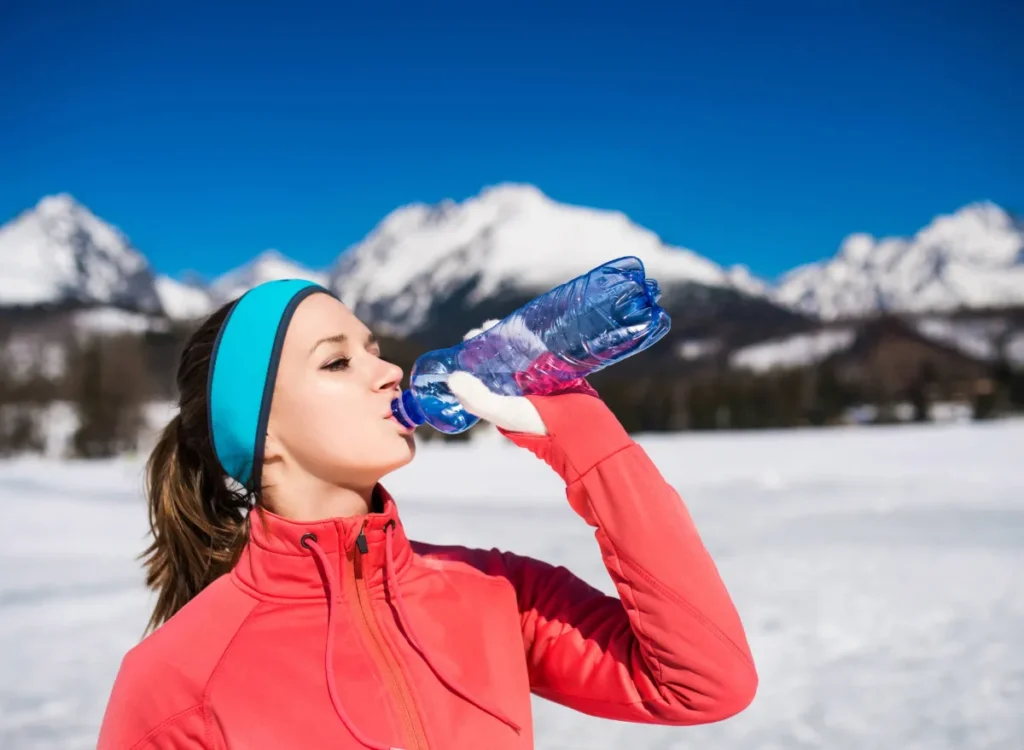
How Much Water Should You Drink in Winter?
While the recommended daily intake remains around 8-10 glasses, individual needs may vary based on factors like body size, activity level, and diet. Since you might not feel thirsty, it’s crucial to develop habits that ensure consistent hydration.

Practical Tips for Staying Hydrated in Winter
Carry a Water Bottle Everywhere
Just like in summer, keeping a water bottle handy serves as a constant reminder to hydrate.
Drink Warm Beverages
Switch to warm, hydrating drinks like herbal teas or hot lemon water. These not only hydrate but also keep you cozy.
Incorporate Soups and Broths
Soups are not just comfort food in winter; they’re also an excellent way to stay hydrated while enjoying a meal.
Eat Water-Rich Foods
Winter produce like oranges, grapefruits, and cucumbers are hydrating and rich in vitamins that boost immunity.
Set Hydration Goals
Use smartphone apps or reminders to track your daily water intake and establish a routine.
Balance With Electrolytes
If you’re engaging in winter sports, consider drinks that replenish electrolytes, as these can be lost through sweating.
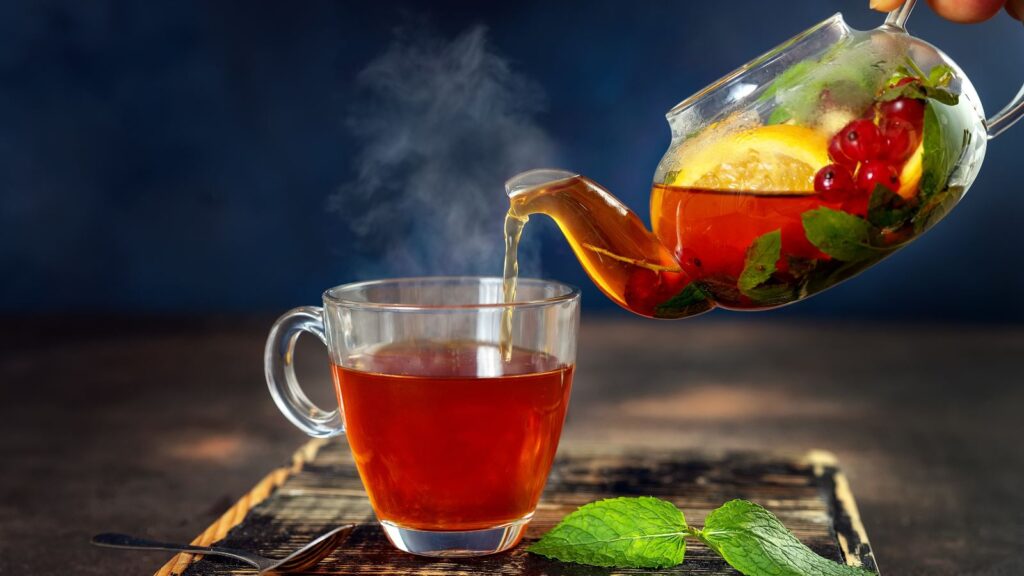
Best Hydrating Drinks for Winter
Herbal Teas
Chamomile, peppermint, and ginger teas are not only hydrating but also soothing for winter chills.
Infused Water
Add slices of apple, cinnamon, or orange to your water for a refreshing seasonal twist.
Coconut Water
This natural electrolyte-rich drink is a good choice if you’re physically active.
Hot Lemon Water
A simple yet effective drink that hydrates and supports digestion.
Warm Milk or Plant-Based Alternatives
Milk and alternatives like almond or oat milk provide hydration with added nutrients.

The Role of Hydration in Winter Skin Care
Winter is notorious for causing dry, flaky skin, but proper hydration can mitigate this issue. Drinking enough water helps:
- Maintain skin elasticity and suppleness.
- Prevent chapped lips and cracked skin.
- Enhance the effectiveness of moisturizers and skincare products.
Pair internal hydration with external care like using a good moisturizer to keep your skin radiant throughout winter.
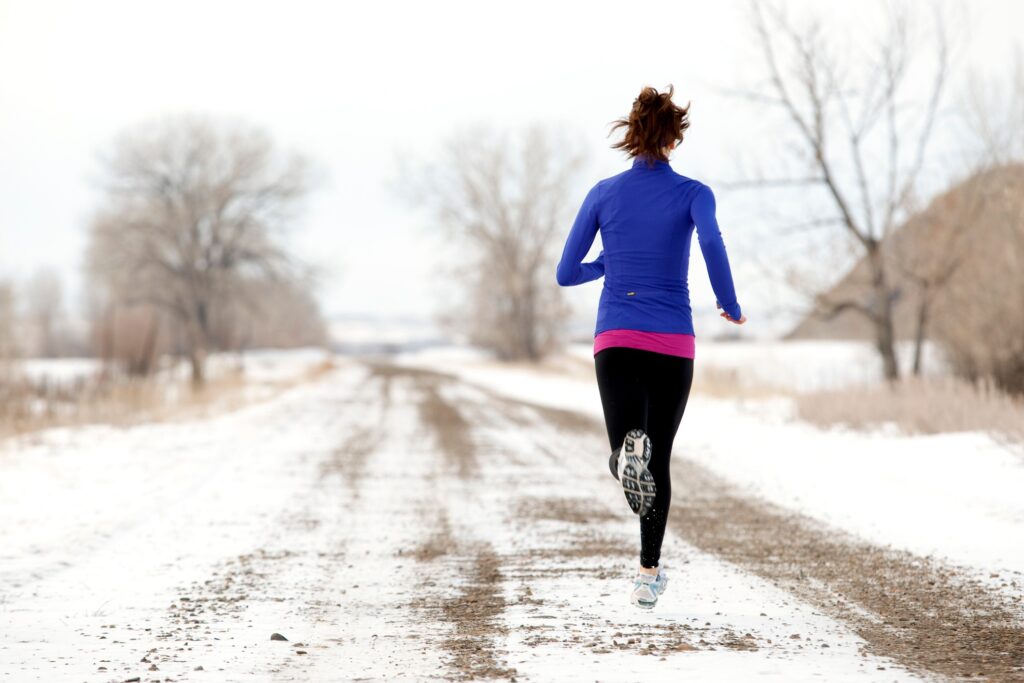
Hydration and Winter Workouts
If you’re staying active with skiing, snowboarding, or hitting the gym, hydration is key. In colder weather, sweat evaporates quickly, and heavy clothing can mask fluid loss.
Tips for Hydrating During Winter Workouts:
- Drink water 30 minutes before starting.
- Take small sips during breaks.
- Replenish electrolytes after intense activities.
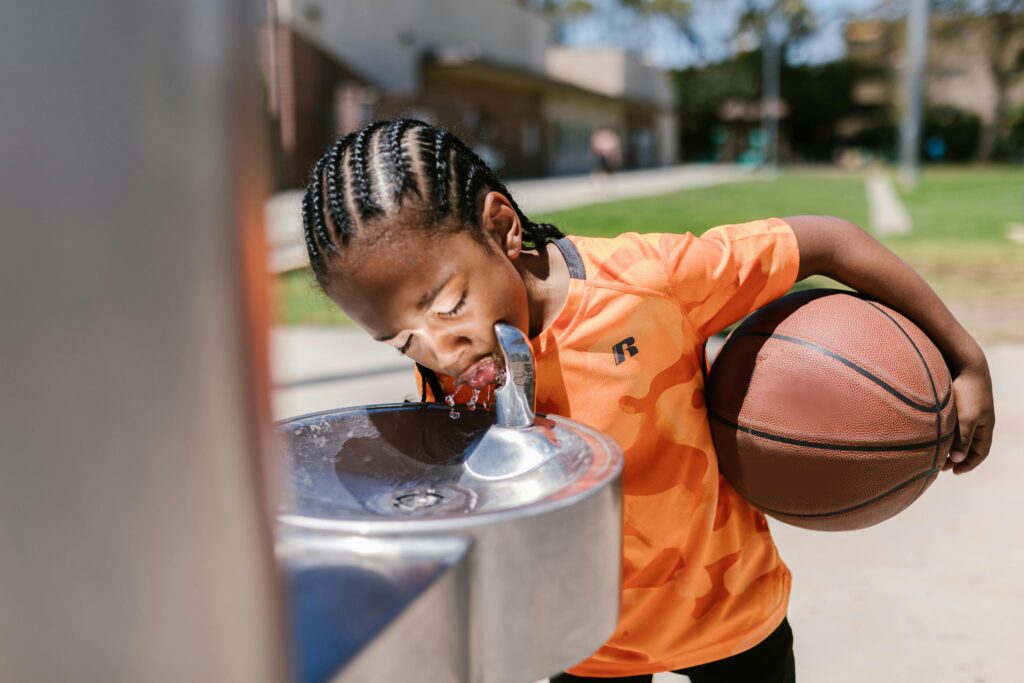
Hydration for Kids and Seniors in Winter
Children and older adults are particularly vulnerable to dehydration in winter due to reduced thirst perception and unique physiological needs.
Tips for Kids:
- Make hydration fun with colorful bottles and flavored water.
- Offer warm soups and juicy fruits as snacks.
Tips for Seniors:
- Encourage frequent sips of water throughout the day.
- Offer warm drinks to make hydration more appealing.
Common Myths About Hydration in Winter
Myth: You Don’t Need as Much Water in Winter
Fact: Your body requires hydration year-round, even if you don’t sweat as much.
Myth: Only Cold Drinks Hydrate
Fact: Warm drinks like tea or broths are equally effective for hydration.
Myth: Thirst is the Only Hydration Cue
Fact: By the time you feel thirsty, you’re already mildly dehydrated.
The Benefits of Staying Hydrated in Winter
Proper hydration in winter contributes to:
- Improved immunity to fight colds and flu.
- Better digestion and prevention of constipation.
- Enhanced mental focus and energy levels.
- Healthier skin, free from dryness or cracking.

Staying Hydrated While Traveling in Winter
Winter travel often involves dry airplane cabins or long road trips, both of which can dehydrate you.
Travel Tips for Hydration:
- Bring a refillable water bottle.
- Avoid caffeine and alcohol during flights.
- Pack hydrating snacks like fruits or cut vegetables.
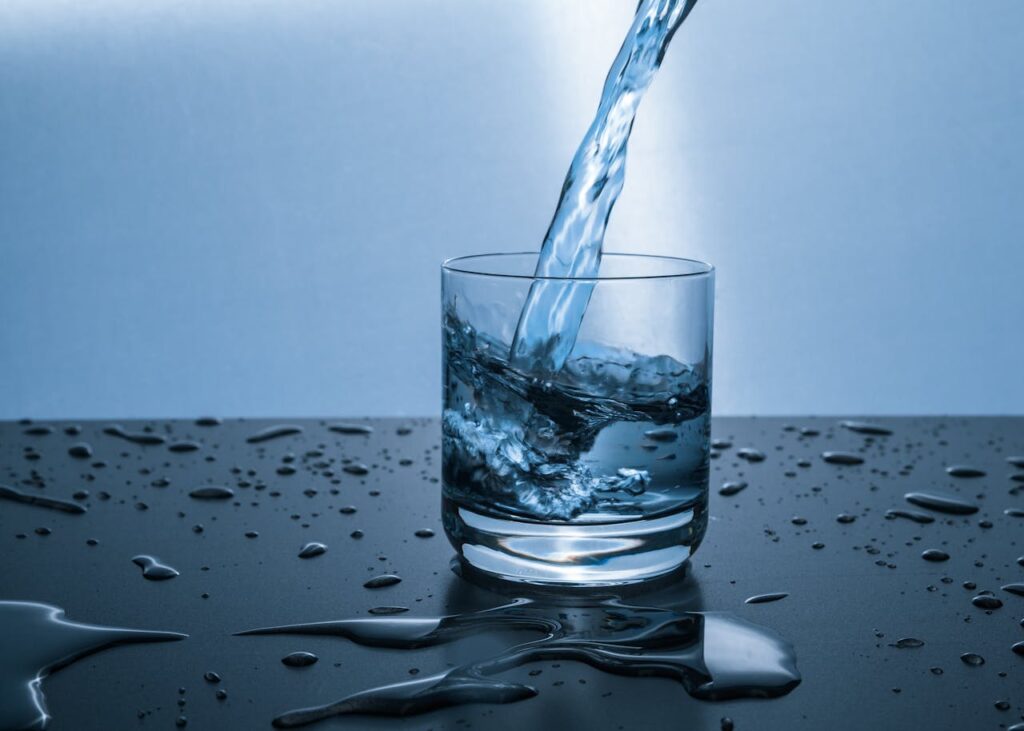
Hydration and Mental Wellness in Winter
Winter’s shorter days and colder temperatures can lead to seasonal affective disorder (SAD) or sluggish moods. Staying hydrated:
- Improves cognitive function and focus.
- Helps regulate mood by supporting brain health.
- Prevents fatigue and the “foggy” feeling often associated with dehydration.
